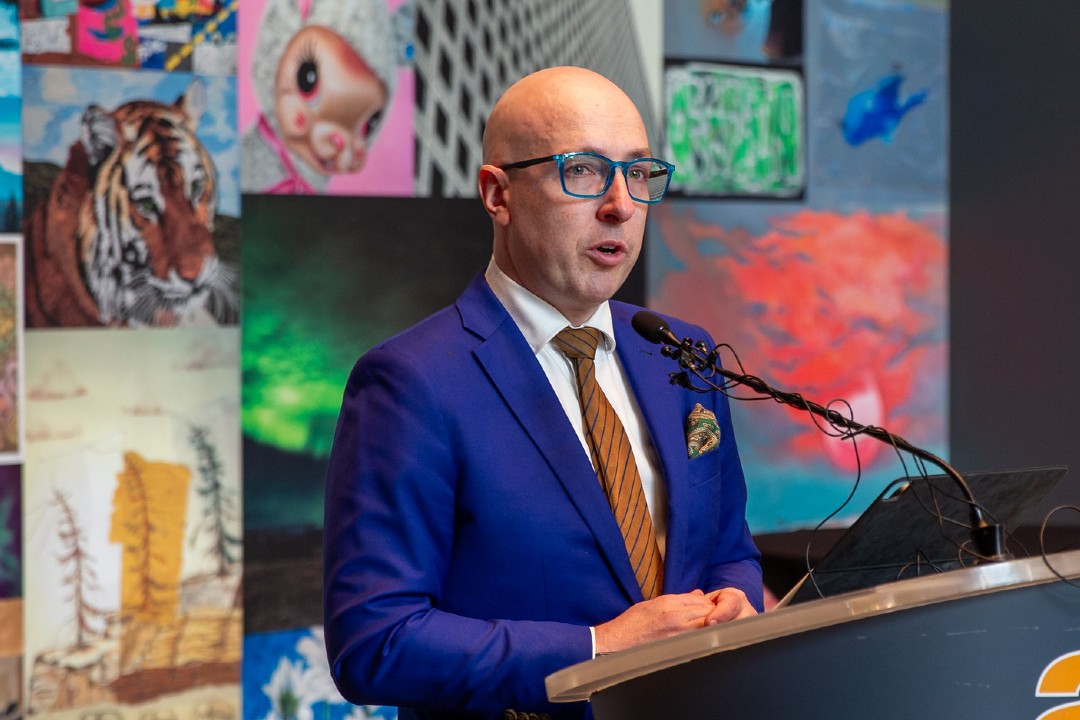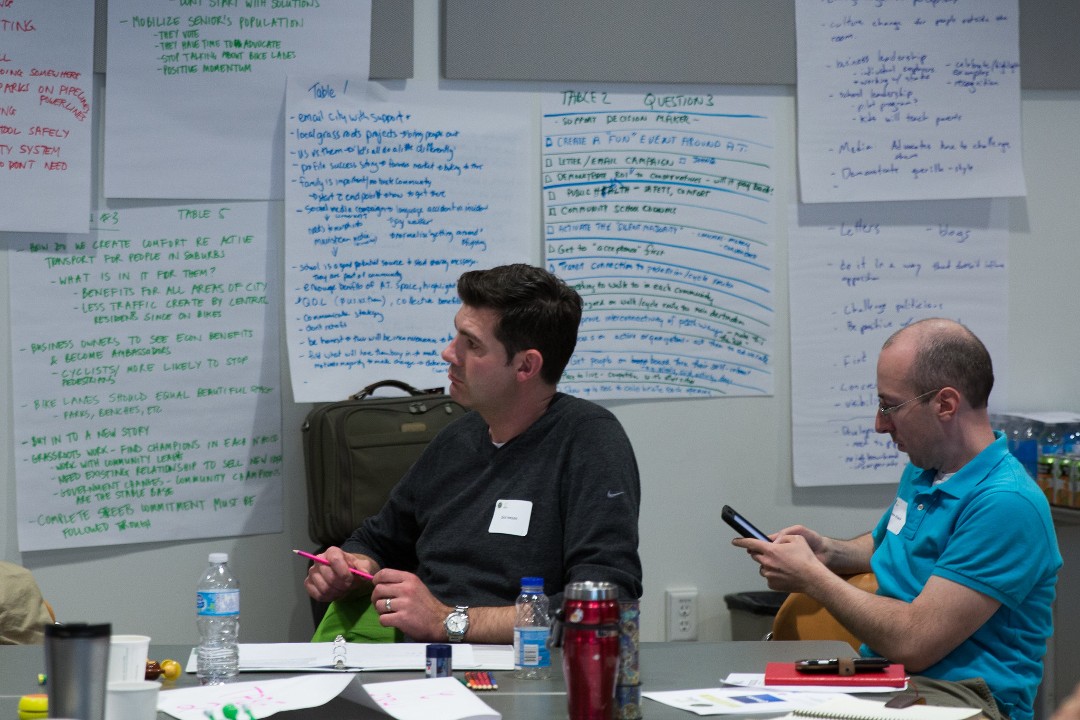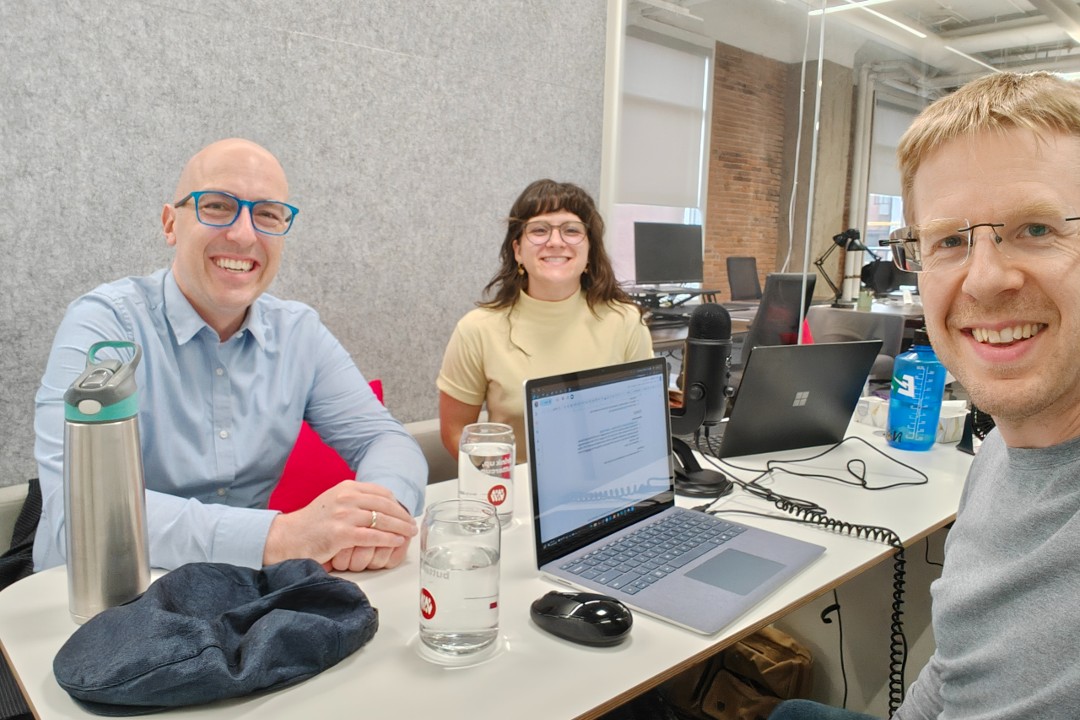The perennially optimistic Coun. Andrew Knack, known for thanking all who engage him, even if it's to tell him he's wrong, has planned how to remain at work during and after the 2025 election, the first municipal poll since 2007 that he won't run in.
"I very much expect I will endorse not just somebody in the ward I represent, but in other wards," Knack said in a candid interview on Speaking Municipally, Taproot's municipal affairs podcast. "I am passionate about our city. I want to be able to share my perspective, whether people care about that or not."
On Sept. 9, Knack provided 13 months notice that he will not seek re-election to Edmonton's city council in 2025. He told co-hosts Stephanie Swensrude and Mack Male that he did so to open the door for new candidates who may be dissuaded to run against him as an incumbent, to open possibilities for more women to win council seats in 2025, and to mirror U.S. President Joe Biden's self-honesty on the need for new perspectives as an election looms. "There is that part of you that asks yourself, 'If I ran again, at what point do I become the person that people are starting to talk to themselves and be like, why is he still around? What value is he adding?'" Knack said, noting that at 40, he's not exactly in the same camp Biden is despite being the "old man" on council. Knack is currently the longest-serving city councillor, having run unsuccessfully in the 2007 and 2010 municipal elections before being elected in 2013.
Knack's announcement was emotional, with his council colleagues heaping praise and bear hugs on him. He has governed in a way that attempts to limit how much he polarizes. Postmedia columnist Keith Gerein wrote that Knack has successfully walked the tightrope between being humble and remaining relevant. "Knack has somehow made modesty and deference work for him," Gerein wrote.
With his big 2025 election news out of the way, though, Knack told the podcasters that while his name won't be on lawn signs next fall, he intends for his presence to be felt during the election, both inside and outside of council.
At council, Knack said he anticipates that he may fact-check the election rhetoric from any council colleague who might choose to run. "I feel like I can be the boring facts guy and be like, 'Well, actually, no, (at) this meeting, this is what we decided,'" he said. "So it's less a criticism of a particular person or a particular party, but rather like, 'Here's a clear statement of facts that people need to know about.'"
Outside of council meetings, Knack said he's already encouraged specific people to run in Nakota Isga, though he refused to offer names. "I've talked to some people … who are in the process of putting together what their team would look like," he said. "I think there will be a couple of good people who I hope are going to run … and I'm sure there's a bunch of other people that I hadn't even thought of that will suddenly come forward and will be fantastic for the area, too."
Looming over the incoming council in 2025 is a fiscal hole, currently sized at $34 million, as well as an exploding population curve. "You're just going to leave this for the next council now, right?," asked Male.
Knack replied by conceding that he did this very thing while sitting on the last council by voting with his colleagues to artificially freeze increases to property taxes during the COVID-19 pandemic. "In my view, it was very much on me and those of us who were on last term, who went through the pandemic and said, 'We've got to keep these taxes really low,'" Knack said. "So, we set up the situation we're in."
Knack said the current council has not been shy as it tackles the fiscal hole this has created, voting in a nearly 9% tax increase in the fall. "Let's remember, it was an 8.9% increase that every member of council voted for," he said. Given it's just a step to fix the fiscal imbalance and that more people are moving to Edmonton, Knack said further tax increases will be on the horizon. "I think this council is not going to shy away from a tough financial conversation for the sake of political gain," he said. "They've shown their willingness to not worry about their political future … and yeah, that might mean that some people lose their job in 2025 because they made what was a really tough decision."

Coun. Andrew Knack welled up with emotion as he announced he would not seek to continue in his dream job as a city councillor on Sept. 7. (Mack Male/Flickr)
Parties coming to party
What has long given Knack pause is the spectre of party politics in the municipal realm. Given the United Conservative Party's newly enacted rules allowing party politics in the 2025 elections in Edmonton and Calgary, he said he's going to continue reminding people that city decisions require compromise.
He said he anticipates a push from a "handful" of political parties that may simplify issues and suggest quick fixes if a slate of candidates who agree is elected. "I think Edmontonians are going to see through that, but I can also understand how that might be appealing at times," he said. "I mean, provincially and federally … some people just vote for the same party all the time because that's how they've always voted."
He said he hopes candidates are brave enough to break out of partisan thinking. "I think we need people who are going to challenge that and say, 'Yes, I might lean one way … but I want to engage as many people as possible. I want to try to make the right decisions. I want to try to learn from the different groups that exist in this city."
The podcast co-hosts questioned Knack on his own aspirations for provincial politics. Knack said while it's not off the table, the incivility he sees plaguing both provincial and federal politics, thanks to partisanship, is the very thing that would prevent it.

Coun. Andrew Knack, pictured here at a brainstorming session in 2016 with former Mayor Don Iveson, said he learned lessons on governance from Iveson. "He was so good at running meetings (and) created an environment where I think everyone felt they had the opportunity to speak up, where they had the opportunity to share perspectives," Knack said. (Mack Male/Flickr)
This council: Misreaders of rooms or misunderstood?
The ability to dig in on complexity and find common ground is a defining trait of the current council, Knack said.
While Knack accepted that some Edmonton residents see this council as increasingly out of touch with the fiscal concerns of people struggling to make ends meet, he added that he's learned more from this group of councillors than any other in his 11 years at city hall. The result of the increased diversity of identities on council, he said, is a positive change, pointing to the public hearing for Edmonton's revamped zoning bylaw in the fall. About 300 people signed up to speak about the bylaw, with a little less than half in support.
"Those voices that came out to that public hearing were voices that you never really would usually see at our public hearing process (in the past)," he said, adding council heard from Edmontonians who were younger or from racialized or newcomer backgrounds. "That didn't happen by accident — that happened because this council found a way to try to widen their engagement reach."
As he contemplated down to the minute how he will stay working until he can't as a councillor, Knack said his first to-do afterwards is to have a day off. But he said it will be difficult. "It's hard because … I'm 40 now, so I'm still relatively young-ish — and who wants to leave their dream job when they're 40?"

Coun. Andrew Knack with podcast co-hosts Stephanie Swensrude and Mack Male. (Mack Male)
There's much more in the Sept. 13 episode of Speaking Municipally, including Knack's anecdote about vomit, his tell-all on why he always wears blue, and a newsroom update from Taproot managing editor Tim Querengesser. Speaking Municipally comes out on Fridays at noon. Listening and subscription options are all right here.
